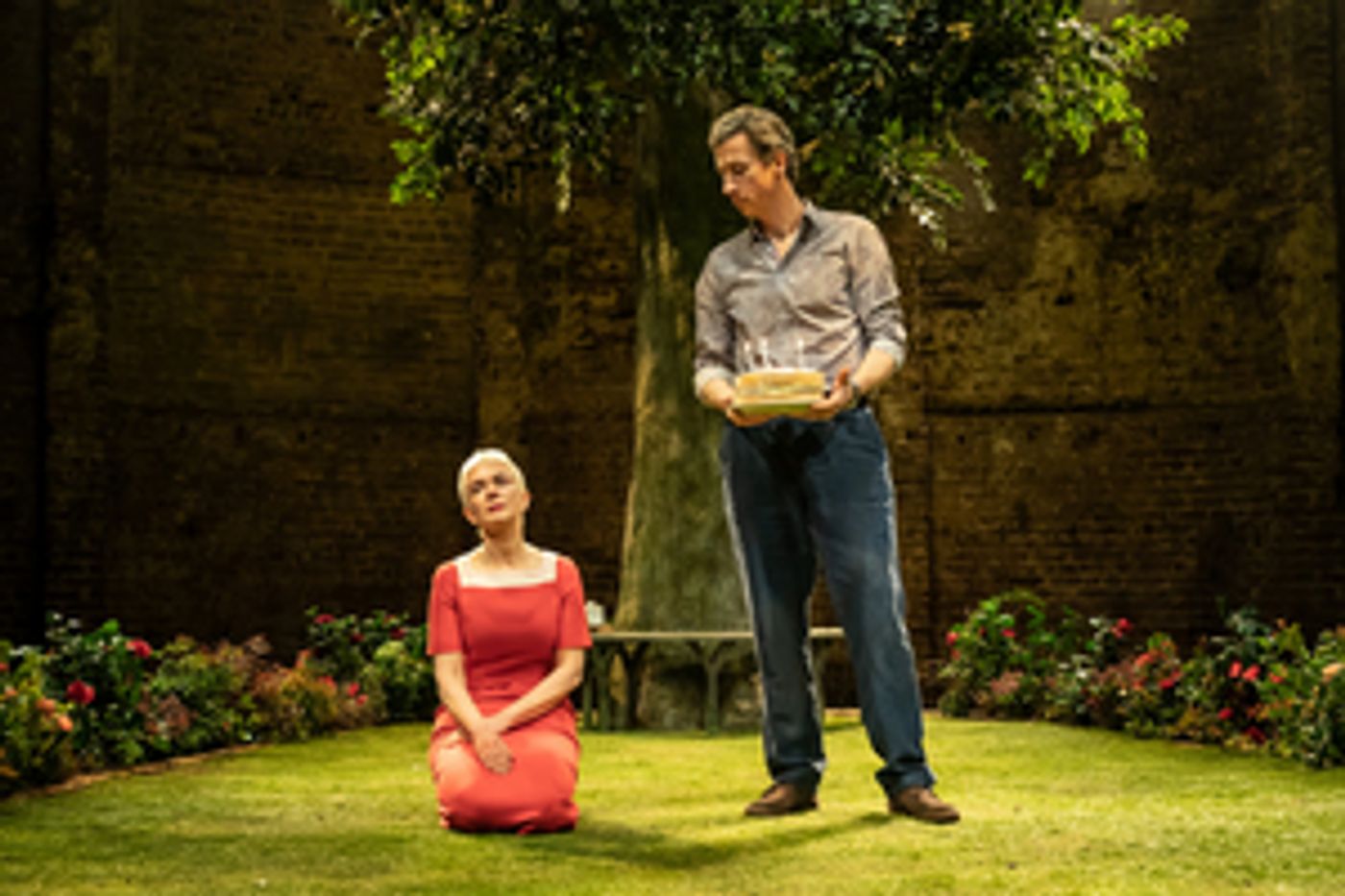Review: ALBION, Almeida Theatre

![]() Having premiered at the Almeida in 2017 to critical acclaim, Mike Bartlett's play Albion returns home with a spellbinding revival directed by Rupert Goold. Rightly billed as a play for our times, Albion appears to have grown in its resonance as a deliciously layered commentary on Britain's thorny relationship to its identity and history.
Having premiered at the Almeida in 2017 to critical acclaim, Mike Bartlett's play Albion returns home with a spellbinding revival directed by Rupert Goold. Rightly billed as a play for our times, Albion appears to have grown in its resonance as a deliciously layered commentary on Britain's thorny relationship to its identity and history.
A garden is both the setting and the backbone of Albion. Enchantingly rendered by Miriam Buether's runway set, it is part of a historic house in rural England that has been bought by businesswoman Audrey Walters (Victoria Hamilton) two years after her son's death in a war. Audrey commits herself to restoring this green plot to its former glory as a quintessentially English landscape. Against the varying protests of her husband and daughter, she insists that the garden is a vital part of the country's heritage and deserves - indeed, demands - to reclaim its faded romance.
But whose garden is this, really? Who has the right, and privilege, to decide what should happen to it? Is Audrey's obsessive project just an indulgent waste of time or a noble pursuit in defence of neglected principles? Bartlett's slyly gripping play provides no easy answers. As the questions multiply, this drama of divided loyalties and conflicting ideals turns into an impressively calibrated allegory about Britain's many internal divisions.
Barring its few references to the Brexit referendum, Albion develops a resonant political undertone that proves far from didactic or blatant. Bartlett's lucid writing succeeds greatly in its refusal to translate the characters' obliquely political tensions into political terms. We are trusted to make the connections ourselves.
Victoria Hamilton is astonishing in her central performance as the increasingly tyrannical Audrey. She brings endless nuance, compassion, and nervous energy into a character whose questionable actions might have appeared villainous in less capable hands. She has the uncanny ability to pack volumes of meaning into a single glance or chuckle.
Hamilton's virtuosity is supported by an exceptional cast. With majestic delicacy, Helen Schlesinger plays Audrey's close friend Katherine, a famous novelist who ends up falling in love with Audrey's daughter Zara (Daisy Edgar-Jones, brilliant). Zara is a young Cambridge graduate with aspirations to become a writer, and when she discovers that their 19-year-old neighbour Gabriel is another writer in the making, the budding friendship between the two gains a darker edge. Dónal Finn is remarkable as the adorably bashful Gabriel.
Nicholas Rowe portrays Audrey's self-consciously vapid husband Paul in a sympathetic register. Angel Coulby is equally great as the tormented girlfriend of Audrey's deceased son, and Edyta Budnik glows as the Polish cleaner hired by Audrey. Altogether, this is a top-notch cast, whose commanding presence on stage is also indebted to Rebecca Frecknall's brisk movement direction.
Rupert Goold directs with characteristic precision, ensuring that the play's centrifugal force does not make for a rambling evening. Running over three hours, Albion earns its protracted length with confidence. There is a Chekhovian note to both the course of the story and the poetic brightness of even the most trivial moment. Which is why the few scenes of heightened stylization feel slightly misplaced, as does the production's overreliance on several non-diegetic songs.
Buether's exquisite set consists of a single stately tree and countless flowers, and, with Neil Austin's tender lighting, evokes the garden that means so much to some and not much to others. It's a plot of land where the past can be revived, ghosts summoned, and grief lessened. But it's also where friendships dissolve, bonds melt away, and new lines are drawn. It's a tricky place, but rest assured that Bartlett's masterful play knows how to cultivate it.
Albion at the Almeida Theatre until 29 February
Photo credit: Marc Brenner
Reader Reviews
Videos

